Social media can be an amazing platform to share what you’re working on and advertise projects and products all over the world.
But publicity stunts have been managed offline for centuries. Before people could go viral online, they had to make a big statement that would get people talking. BBC Bitesize explores four publicity stunts that were one for the ages - for better or worse.
Four historic publicity stunts
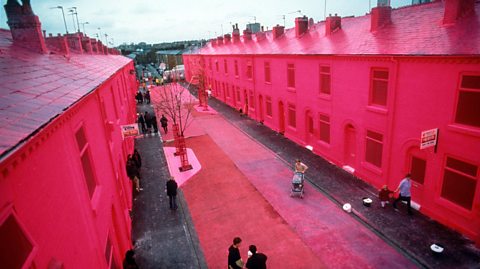
1. Pretty in pink: Barbie takes over Ash Street
Did you know that to market Mattel’s 1997 Barbie doll as part of ‘pink month’, the toy corporation made a whole street turn pink? Mattel commissioned artist Ben Jones to transform Ash Street in Salford, England, into a fluorescent strip. Working against the rain, teams of people spraypainted everything in sight over 48 hours, from lampposts to roof tiles to window frames. The residents of the houses agreed to lend their houses in return for cash and toy donations to local play groups. The paint lasted a whole month and the Ash Street stunt reached about 100 million people through media attention, long before things could ‘go viral’ in the way we know today.
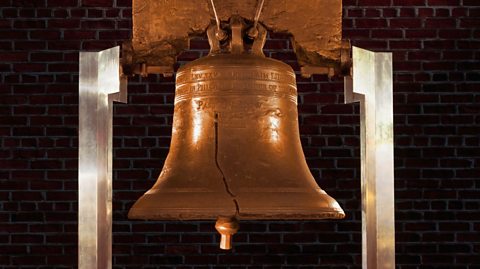
2. The Taco Liberty Bell
Roller-skate back a little to 1996, when multinational fast food chain Taco Bell played a successful April Fool’s joke on the whole USA. Since the city’s founding in 1751, the Liberty Bell rang to alert residents of Philadelphia, Pennsylvania, of civic dangers. It became a symbol of freedom when it rang to signify America had gained independence from the British. It wouldn’t be named the Liberty Bell until it was later adopted as a symbol by abolitionists in 1837. Since then it was also made a proud symbol of unity following the American civil war and for women’s suffrage in the early 1900s.
So, it’s understandable that when Taco Bell announced it had bought the important historic relic on 1 April 1996, national outrage ensued. The chain took out full-page ads in leading newspapers all over the country to let people know they bought the bell from the government to “help with national debt”, and were renaming it the “Taco Liberty Bell”. Many angry and confused people called into the Taco Bell headquarters before it was confirmed to be a joke by noon the same day. Company officials stated they would be donating $50,000 to the upkeep of the Liberty Bell and it was all an advertising campaign. White House Press Secretary Mike McCurry found it humorous and responded by 'announcing' that the government would be “selling the Lincoln Memorial to Ford Motor Co.” and renaming it Lincoln-Mercury, after the then-popular brand of car.
While many found the hoax alarming, it proved to be a successful marketing stunt as the chain generated an estimated $25 million (around £37.2 million today), compared to the $300,000 (£436,823 today) campaign cost and it went down as one of the biggest April Fools jokes in history.
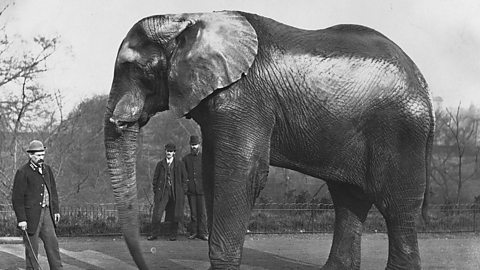
3. The first media circus
Even over 150 years ago, one way to get attention was to be gossip-worthy. The phrase “There’s no such thing as bad publicity” is often attributed to P. T. Barnum, co-founder of Barnum & Bailey circus. Barnum certainly lived by this statement and was no stranger to controversy - even before he was known for putting on glittering shows, he stirred up the public with scandals and scams.
Barnum employed a number of advertising techniques, including pioneering ‘press agents’ (what we would now call publicists) who would raise awareness for shows, media touring with performers, and frequent outrageous publicity stunts. One stunt involved swapping out oxen for an elephant to plough the six-acre front garden of his home in Connecticut, USA, which was situated by a train track. Passing commuters saw this A large mammal with thick skin, such as an elephant, rhino, or hippo. plough on their way to New York City, and newspapers reported glowing accounts of the stunt which successfully advertised the circus.
While The Greatest Showman film paints a more sympathetic view of the media mogul, in real life Barnum's own performers protested against him for ill treatment and not paying them fairly for the exploitative shows. On 6 Jan 1899, Annie Jones, the Bearded Lady, called a meeting to dispute the use of the word ‘freak’. Those involved in Barnum’s immensely popular ‘freak-shows’ rallied in support. This meeting also whipped up a media frenzy, with people all over the country sending in alternative name suggestions - and the performers decided to rename themselves The Prodigies. A similar rally followed four years later in New York, where the term ‘freak’ had returned - which was then revealed to be a copycat publicity stunt organised by Barnum’s very same press agent.
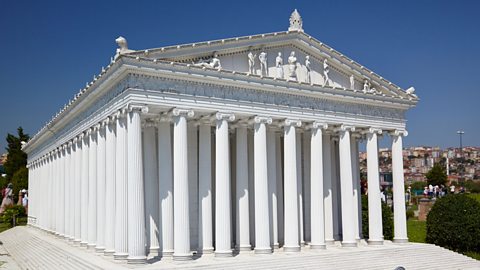
4. The meaning of infamous
You know by now that the best publicity stunt is the kind that doesn’t cause harm and is creative rather than controversial. Apparently one Ancient Greek didn’t get the message: Herostratus was so keen to be famous in 4th Century BC that he destroyed the sacred Temple of Artemis in Ephesus - and admitted he just did it to be remembered. To counter this, a new law that would come to be known as damnatio memoriae (condemnation of memory) was passed to ban Herostratus’s name from being spoken or written down. It ultimately didn’t work because we still know who he is, but for all the wrong reasons - nowadays a crime committed for notoriety is known as a 'herostratic crime', and likewise 'herostratic fame' is fame sought at any cost. Not worth it!
This article was first published August 2023
Would these historical figures go viral on TikTok?
We think these four fantastic legends from history would take the internet by storm today.
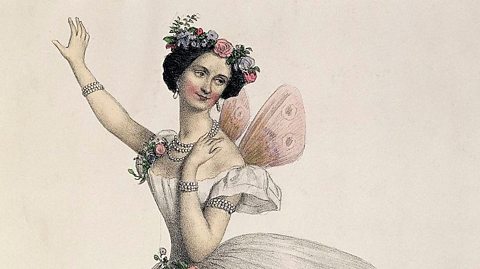
Women’s World Cup 2023: The women celebrating sustainability in football
Find out more about the upcycling project that highlights the need for sustainability in the worlds of football and fashion.
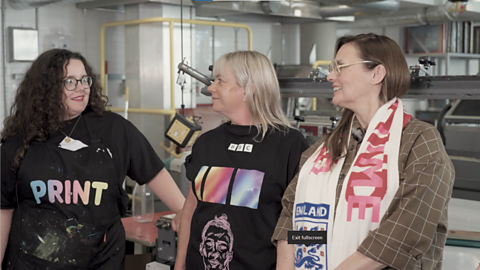
Five forgotten punctuation marks
Just like the vocabulary we use when we write, the full stops, commas and semi-colons we punctuate with have also changed over time.
